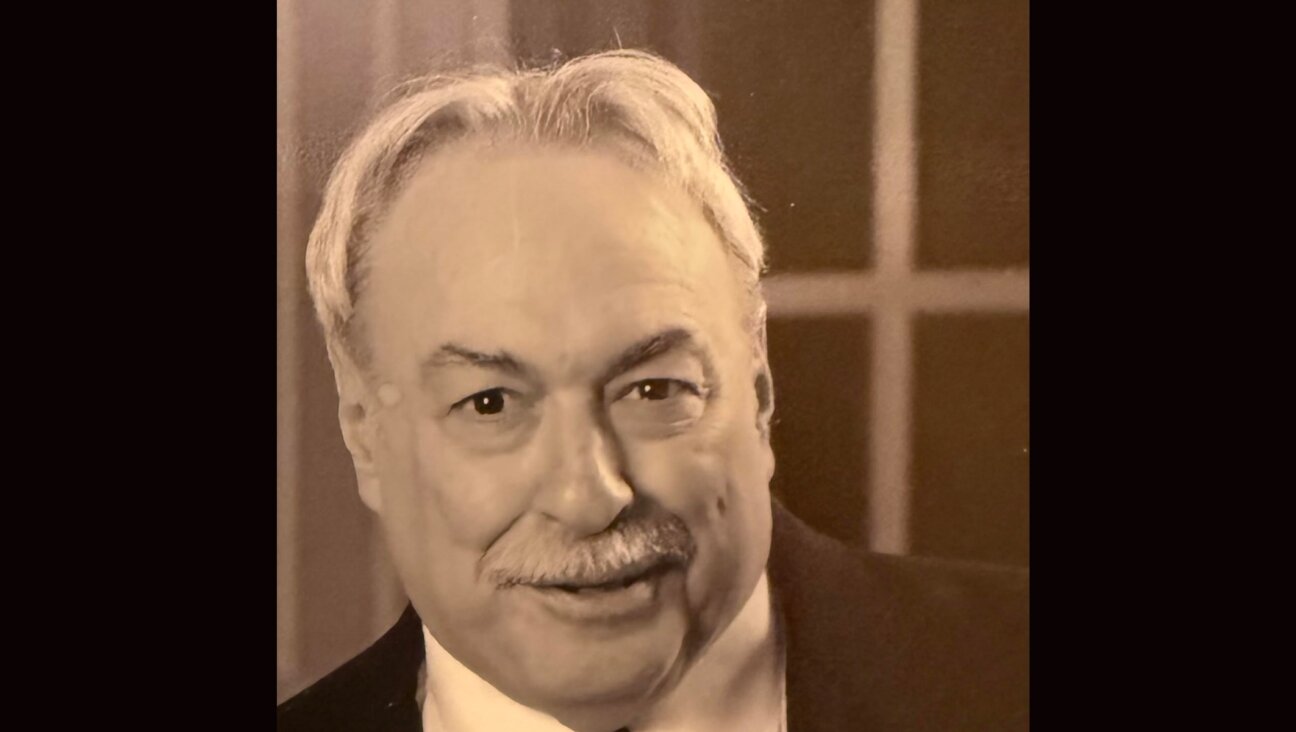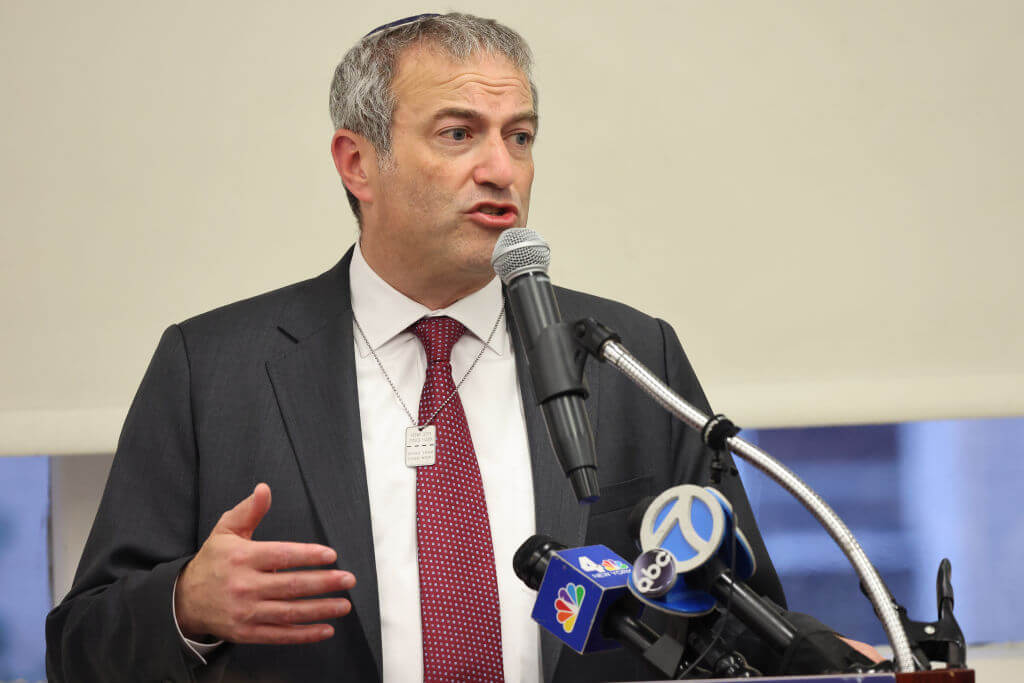Wikileaks Reveals Hillary Clinton’s Plan To Roll Out Opposition to BDS

Image by getty images
Hillary Clinton and her staff know the Jewish community all too well.
In fact, the team is so immersed in the ins and outs of inside Jewish baseball, that even a straightforward statement opposing efforts to boycott Israel early in the campaign was an issue of intense deliberation and scrutiny.
As a recent Wikileaks email exchange reveals, the Clinton campaign, in the summer of 2015, worked on finding a way to express the candidate’s strong opposition to BDS, a movement aimed at boycotting Israel and divesting from it.
The email exchange, between Clinton’s top foreign policy adviser Jake Sullivan and Stuart Eizenstat, a former top administration official who had been serving as an outside adviser to the campaign on issues relating to the American Jewish community and Israel, discusses the idea of delivering an anti-BDS speech to a gathering of Jewish American communal leaders.
Eizenstat put a lot of thought into compiling the list of Jewish leaders who should be included on the invitee list: “I would err on the side of a larger number, even though it would be a bit unruly,” he wrote Sullivan. “I have tried to include a significant number of women, and a geographic diversity.”
What did Eizenstat mean by “unruly?”
The veteran Jewish official was referring to the political rift within the community about Israel. He wondered whether it would be wise to invite Morton Klein, head of the Zionist Organization of America, a group that had strongly opposed President Obama’s policy toward Israel. Klein, Eizenstat wrote, “would be flattered to be invited, but is very hardline.”
Eizenstat also suggested inviting J Street president Jeremy Ben-Ami (“I do not think he should be excluded,”) president of the World Jewish Congress Ron Lauder (“a Republican, but must be invited given his position,”) and Clinton donor Haim Saban, who at the time was involved in an anti-BDS partnership with GOP mega-donor Sheldon Adelson.
“I do not see how Adelson can be invited,” Eizenstat opined, “because he is such a strident GOP-supporter and would be a potentially disruptive force in a meeting.”

Stuart Eizenstat Image by Karen Leon
These intricacies of Jewish communal politics did not go unnoticed by the Clinton campaign and eventually led the candidate to shoot down the idea altogether.
“(Clinton) is now thinking that she can send a letter to a broader group — like all the names you’ve offered and then a few more — RATHER than hold a meeting,” Sullivan wrote back. “She is now worried about how to manage a meeting given competing perspectives and the like.” And so, the meeting never took place.
Instead, a carefully crafted letter was prepared by her team. An easier solution than sitting down with rival leaders of the Jewish American world.
But even this outreach turned out to be too broad, and so instead of sending the anti-BDS letter to all Jewish leaders on Eizenstat’s list, Clinton ended up in addressing it to only one activist – her trusted supporter Haim Saban. The letter to Saban, sent out on July 2, 2015, included most of the language agreed upon in the back-and-forth between Sullivan and Eizenstat. Clinton signed it personally, adding in pen: “Look forward to working with you.”
But another email brought to light in the latest Wikileaks dump, makes clear that while Clinton’s aides sometime have a hard time figuring out the American Jewish community, they are all in agreement on one thing: they cannot stand Israeli prime minister Benjamin Netanyahu.
Discussing the latest election results in Israel last year, when Netanyahu won his reelection bid, Clinton adviser Neera Tanden wrote campaign chair John Podesta that “Israel is depressing.” Podesta’s conceded. “Bad” he responded.
This exchange did not escape Donald Trump who tweeted Friday Morning:
Just out: Neera Tanden, Hillary Clinton adviser said, “Israel is depressing.” I think Israel is inspiring!
— Donald J. Trump (@realDonaldTrump) October 28, 2016
Contact Nathan Guttman at [email protected] or on Twitter @nathanguttman
A message from our Publisher & CEO Rachel Fishman Feddersen

I hope you appreciated this article. Before you go, I’d like to ask you to please support the Forward’s award-winning, nonprofit journalism so that we can be prepared for whatever news 2025 brings.
At a time when other newsrooms are closing or cutting back, the Forward has removed its paywall and invested additional resources to report on the ground from Israel and around the U.S. on the impact of the war, rising antisemitism and polarized discourse.
Readers like you make it all possible. Support our work by becoming a Forward Member and connect with our journalism and your community.
— Rachel Fishman Feddersen, Publisher and CEO
























